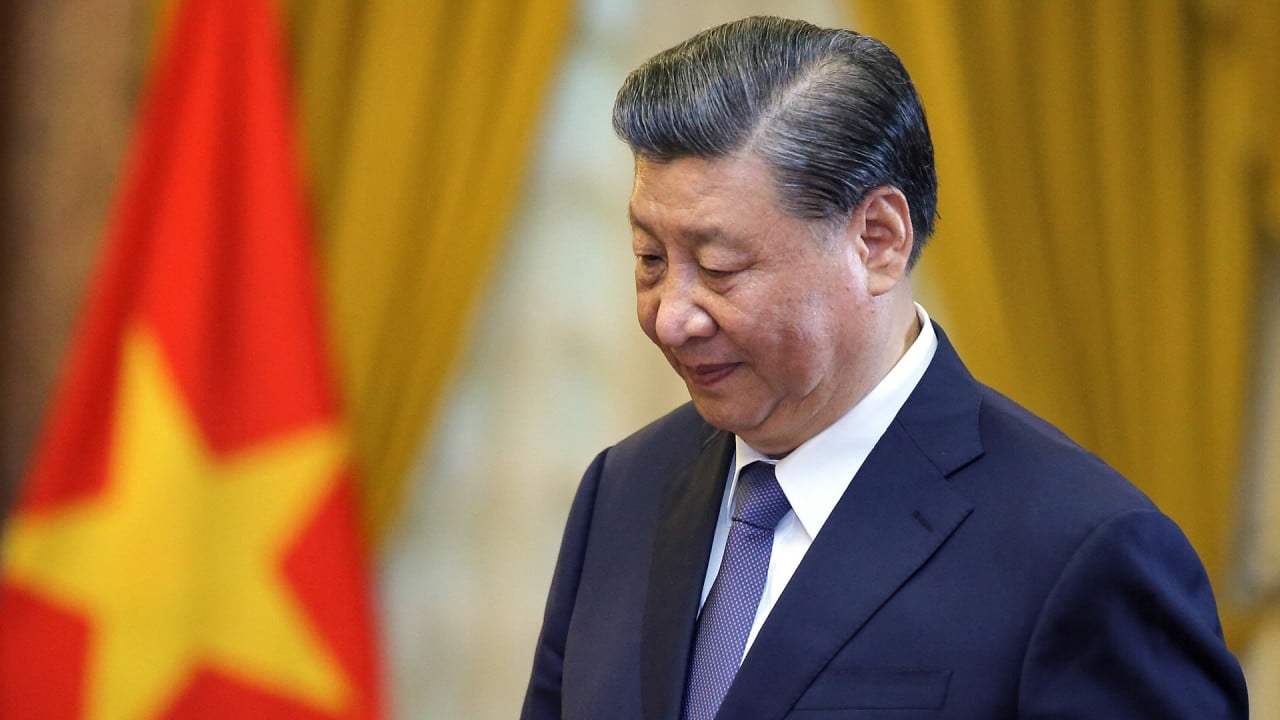
President Xi Jinping urges China’s diplomats to ‘defy strong powers’ posing ‘special challenges’ to national interests
- Envoys and overseas officials must display ‘readiness to fight and a firm will to defy strong powers’, Xi tells envoys
- China must build a ‘diplomatic iron army’, he says, citing ‘escalating oppression and containment by external forces’ in recent years
Addressing diplomats gathered in Beijing on Friday, Xi said ambassadors and overseas-based officials must tell China stories well and win more friends.
“It is necessary to … resolutely safeguard national sovereignty, security and development interests, with an attitude of readiness to fight and a firm will to defy strong powers,” state news agency Xinhua quoted Xi as saying.
Addressing the Central Conference on Foreign Affairs Work that concluded on Thursday, Xi had urged Chinese diplomats and cadres to “break new ground”, “rally the overwhelming majority” of the world and adhere to the “fighting spirit”.
On Friday, he said “escalating oppression and containment of China by external forces” in recent years had posed “special challenges for diplomatic work” and tested China’s envoys.
Describing Chinese envoys as defenders of national interests, Xi said they should make good use of multilateral mechanisms and rules to gain understanding and support from the global community.
“[The envoys] must be good at making friends widely and deeply, and winning people’s hearts and minds should be done during official occasions and also deeply among the masses,” he said.
“They should also use international language and methods to tell China stories well, connect China with other countries, and connect history with modern times, so as to enable the world to better understand China in the new era.”
Pang Zhongying, a chair professor of international political economy at Sichuan University, said there was some ambiguity in the official wording, making it hard to assess if there was a change in foreign policy.
However, the emphasis on tensions and “bullying” could mean continued strains in China’s relationship with the West, Pang said.
He added the United States, the European Union and Britain had sent officials to Beijing over the past year to signal goodwill, but Beijing had not responded to them.
Instead, China has highlighted meetings with non-official “US friends”.
Foreign ministry spokeswoman Mao Ning said on Friday that Xi “personally reached out to the world to tell China’s stories and make friends across the globe”.
Those personal contacts included meetings in Beijing with former US secretary of state Henry Kissinger and former Microsoft CEO Bill Gates.
Kissinger met Xi at the Diaoyutai state guest house in the Chinese capital as part of a “private trip” in July. It was in stark contrast to visits by US officials around the same time which excluded meetings with the Chinese leader.
While in San Francisco for a summit with US President Joe Biden, Xi also “had cordial conversations with old friends from various sectors” and “delivered a historic speech to the American public”, according to Mao.
On Friday, Xi also asked the envoys to thoroughly study and implement the spirit of the foreign affairs work conference, which had laid down the “goals, direction and guiding principles” for China’s diplomats.
Envoys must “enrich their minds with the party’s innovative theories, sharpen their eyes to distinguish right from wrong, and always maintain the correct political direction”, he said.
They should “put discipline and rules first”, and “build a diplomatic iron army loyal to the party, brave in taking responsibilities, daring to fight and being good at fighting”.

.JPG?itok=zUDwoZRB&v=1701240446)
